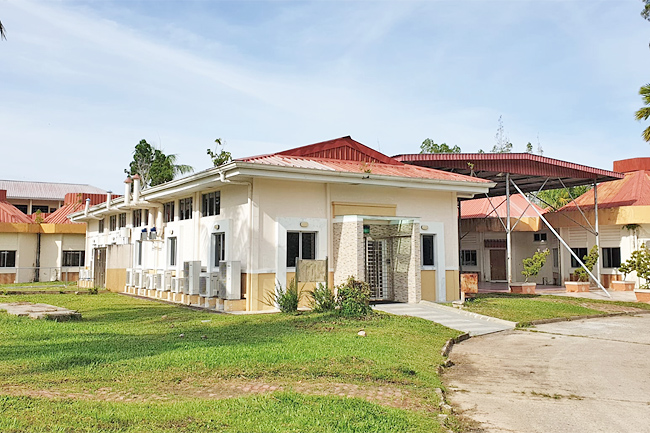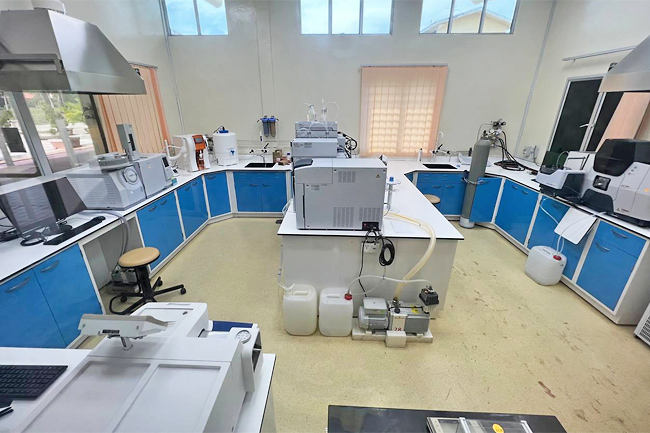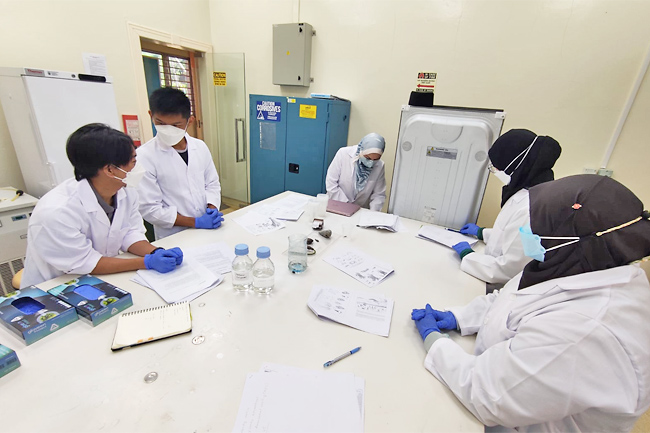Contributed by Universiti Islam Sultan Sharif Ali
Universiti Islam Sultan Sharif Ali (UNISSA) expanded its scope of teaching and research in the field of Agriculture and Halal with the handover of the Sinaut Agricultural Training Centre building, under the Department of Agriculture and Agrifood, on June 15, 2021.
Now known as the UNISSA Sinaut Campus, the scientific laboratories will be used for learning, research functions and professional services, especially the Faculty of Agriculture and the Halalan Thayyiban Research Center (PPHT), UNISSA.
During the 12th UNISSA Hafl Al-Takharruj, His Majesty Sultan Haji Hassanal Bolkiah Mu’izzaddin Waddaulah ibni Al-Marhum Sultan Haji Omar ‘Ali Saifuddien Sa’adul Khairi Waddien, Sultan and Yang Di-Pertuan of Brunei Darussalam, the Chancellor of UNISSA approved the establishment of the scientific laboratory under the name UNISSA Ibnu Sina Scientific Laboratory Centre.
His Majesty has also decreed that the establishment of the laboratory will open up more research space and explore the latest innovations, and at the same time be an important investment to produce a generation of capable researchers.



The selection of the name Ibnu Sina Scientific Laboratory Centre is based on the aspiration to the great contribution of Islamic scientific figures in the field of modern medical science.
As part of UNISSA’s long-term plan, the facility will further serve and function as teaching laboratories; nutrition laboratory; tissue culture laboratory; laboratory of soil, water, crops, environment, and fertilisers; DNA laboratory; herbal research laboratory; aquaculture laboratory; and halal analytical laboratory.
Among the activities and programmes to be carried out at the Ibnu Sina’s scientific laboratory under the Faculty of Agriculture are courses related to plant techniques, rice harvesting, organic soil modification and mangrove life studies that have been presented during the UNISSA Hafl Al-Takharruj Festival.
In addition to that, in line with the academic programme structure in the field of Halal Science, the Halalan Thayyiban Research Centre, which will begin with the January 2023 academic session, will strive to involve students in conducting small-scale laboratory studies through animal DNA analysis of food, cosmetic and pharmaceutical product samples including a study on the percentage of alcohol (ethanol) in food and drink samples as well as a study on the identification of pig fur and skin.
Based on the results of the research carried out at the Ibnu Sina Scientific Laboratory, it is expected that it will be able to be used as a source of information and reference material, especially for academics and students as well as the general public, whether distributed in the form of seminars, conferences, forums, publications in the form of book chapters, articles, journals or the like.
This is with the hope that this kind of effort will be UNISSA’s scientific contribution in helping the government raise awareness about the importance of agriculture in ensuring food security and also preserving the halal of food products and non-food products in accordance with the requirements of Syariah.






